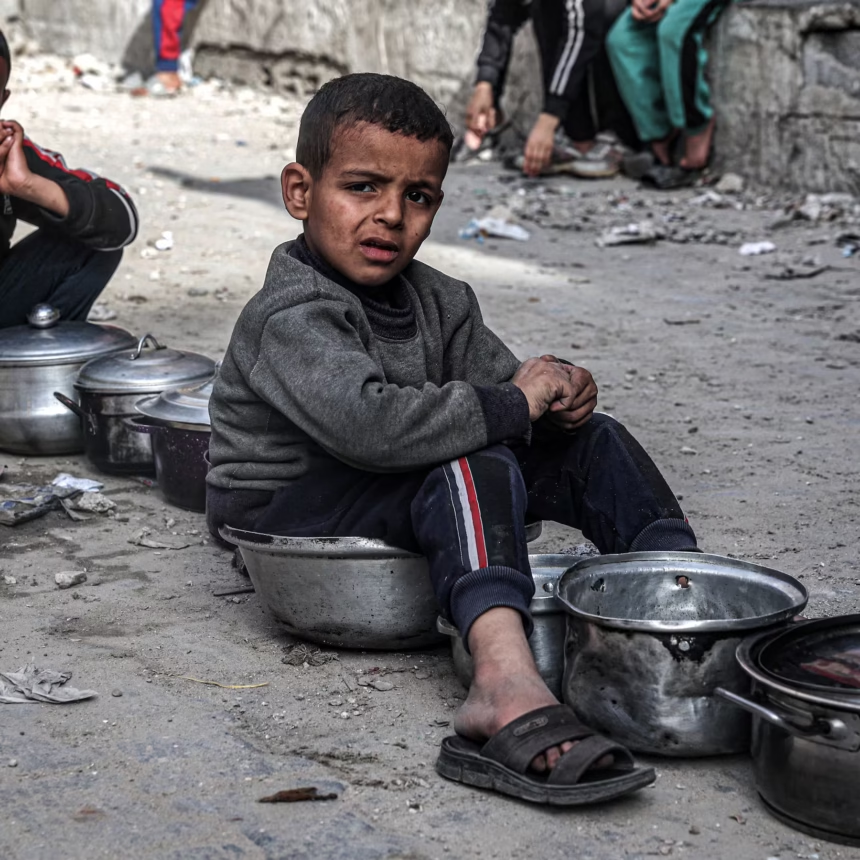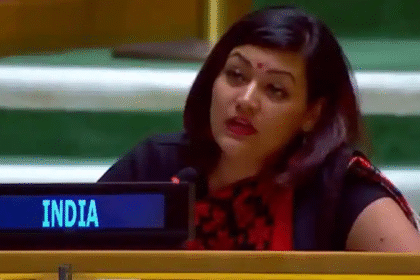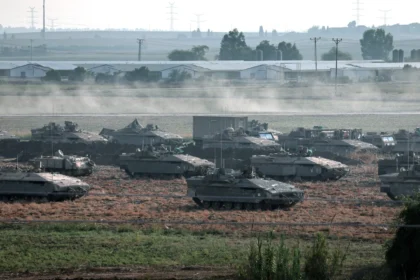Gaza Famine Beyond Words: Palestinian Journalist Soliman Hijjy on Media Silence and Human Suffering
New Delhi: Everyday, Palestinian journalist Soliman Hijjy scrambles to look for ways to gain stable internet connectivity at the Gaza strip. Good internet is just one of the many things Gaza does not have – in addition to adequate food, water, and transportation.
Over a phone call which is several times because of the lack of smooth connectivity, Hijjy expresses anguish over the situation in Gaza. He says that the targeting of civilians seeking food aid is “far from over”. The journalist says that his work continues to get difficult with every passing day.
The chat is transcribed here.
We have read reports of wide-spread starvation, including among journalists for whom international news organisations have expressed concern. Can you describe to our viewers as to what the on-ground situation in Gaza is, as of today.
The famine that is striking the Gaza Strip cannot be easily described. It is very difficult and harsh, as more than two million people are starving, living in an area of land that does not exceed 100 square kilometres, due to Israel’s control over the remaining area of 365 square kilometres. Israel has prevented, for more than four months, food, medicine, water, and fuel from entering this area, as a form of collective punishment on the inhabitants of this spot of land.
This has affected the lives of many children, the elderly, and those who carry diseases. It has led to the death of many of them due to the famine that was imposed on them and on us as journalists who live on this land. We are from the land, we are its people. Journalists are also restricted and exposed to what the inhabitants are exposed to. We are no longer able to move and travel due to the interruption of fuel and transportation, and we are already exhausted due to the lack of food and water.
Journalists in Gaza are facing heavy censorship. There are reports saying they are shadowbanned by social media companies. How do you get your work out to the world?
Unfortunately, I am one of the journalists who have been and continue to be subjected to a lot of harassment by pro-Israel groups and also by social media platforms. I am attacked because we write, film and talk about what we are suffering and about the tragic conditions, our lives and the famine. We were stopped from working with many parties. Casting doubt on the work we publish on social media platforms – the way we document the reality of life in the war in Gaza – acts as a kind of pressure on us to not convey the reality. It also cuts off our source of livelihood.
In March, Drop Site News mentioned that you were trekking long distances to document the destruction in Gaza. Are you able to continue doing this?
Unfortunately, every new day of work is more difficult than the previous one due to the lack of transportation and also because of our inability to obtain the food that strengthens us and water that quenches our thirst.
This greatly affects our coverage of events, as we walk to reach and cover events. Our feet are weighed down by war and the journalistic equipment that we use. The climatic, health and psychological conditions are difficult as ever, but we continue to cover with all our strength and determination.
As journalists, we collaborate with other professionals in the field. Are you able to continue working with other journalists? Could you describe what collaboration with other journalists looks like in Gaza?
Yes, we always cooperate with everyone, and sometimes we share tasks and geographical areas in an attempt to transmit events and details on the famine and war from everywhere in the Gaza Strip. We try to transmit the sound of empty stomachs and the experience of witnessing the death of children because of the war. Each person sends what they have documented in the area surrounding him if he has good internet to transmit the footage. We also do not forget the public press that documents every event everywhere and publishes it through social media. We communicate with the person who filmed it and use the photographed material. Sometimes we buy it.
Israel uses Hasbara (or public diplomacy) to shape global opinion, portraying itself as the victim despite the IDF’s targeted destruction of Gaza. Pro-Israel social media often denies war crimes and its users try to show ‘normalcy’ in Gaza. How do you respond to those who believe these narratives?
Unfortunately, there is no response to those who doubt what is happening here in Gaza, except that they are abnormal and have no connection to humanity, because they lie and close their eyes to the truth and fight it. They support and call for more killing of children, women and civilians, and they justify the killing of innocent lives with flimsy arguments and to satisfy the bloody desires of some.
There are several voices from around the world, of Palestinians and others, speaking against Israel’s actions. But are there stories you see and experience that nobody is talking about?
No matter how much we photograph and transmit stories and what is happening in the Gaza Strip, what we document is only a small part of the events that we do not cover and cannot cover well. Journalists have also become the story, and the army is targeting them directly every day, which affects the nature of their work and their movement as well. Often, much of what is transmitted is blocked by social media and also international agencies, in order to align with the Israeli narrative.
When we look at all the ground reporting from Gaza, especially after international journalists have been barred from entering, we see has been mostly freelancers and stringers who contribute to the world’s biggest news platforms. Why do you think Palestinian journalists on the ground are rarely employed on a full-time basis by international news organisations?
Unfortunately, most international agencies, newspapers, and channels are not honest in their journalistic practices when it comes to contracts with collaborators on the ground. Many avoid formal written contracts to escape financial responsibility and deny basic protections to local journalists. By doing so, they reduce costs and avoid paying the rightful dues to those risking their lives to report from conflict zones.
During this war, we have witnessed well-known global agencies and media channels neglect the safety of their collaborators. Some have failed to send promised payments, abruptly stopped working with journalists, and ignored their rights. This behavior is often influenced by pressure from Israeli lobbying groups attempting to limit the coverage of what is actually happening. In some cases, these journalists have been deliberately targeted—bombed, killed, or had their families harmed—as a form of brutal retaliation.
The dominant narrative around the Palestinian condition seems to be focused on what has happened since October 7, 2023. But you have worked to document Israel’s atrocities prior to that – through your 2021 film So they know we existed. What would you say to someone who says that everything started after October 7, 2023?
Israel continues to cling to the date of October 7 as the central justification for its actions, presenting everything it does as a reaction to that day. It perpetuates the narrative of recovering prisoners to mask its broader campaign. Under this pretext, Israel has killed over 60,000 civilians—most of them women and children—and has wiped out entire families from the population registry.
Using starvation as a weapon and implementing various forms of collective punishment against more than two million people, Israel has carried out massacres and targeted the very foundations of civilian life. These actions reveal the hollowness of the narratives once promoted globally. Despite international law applying to all nations, Israel appears to act with impunity, as no global power is effectively intervening to stop its ongoing policies and deliberate targeting of civilians.
Also Read: At Least 60 Dead in North China After Extreme Rain Triggers Widespread Flooding, Say Authorities








